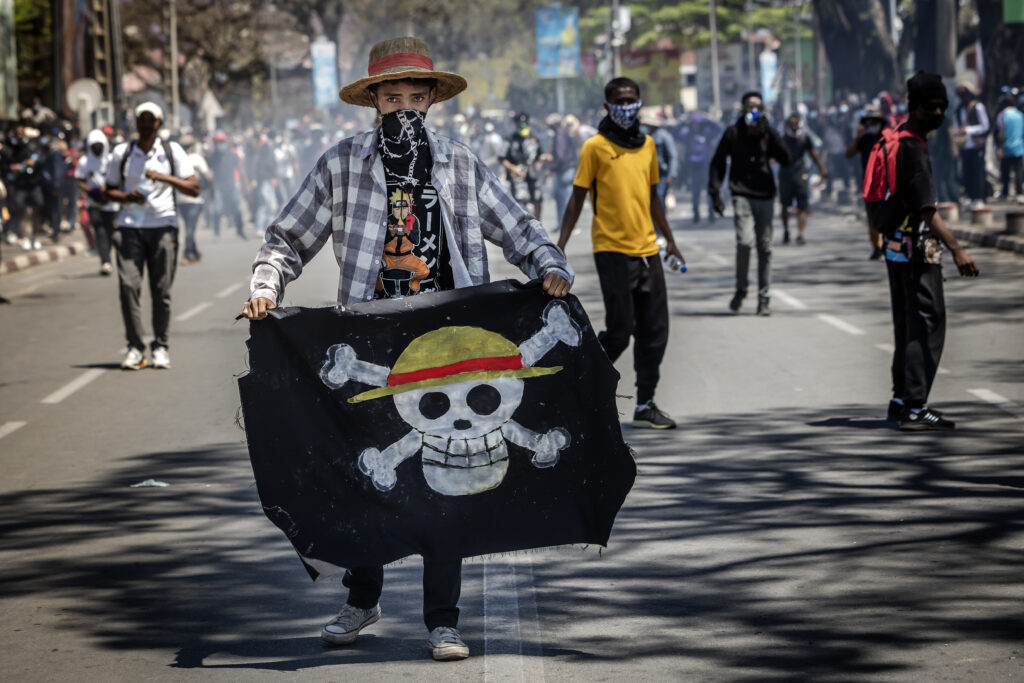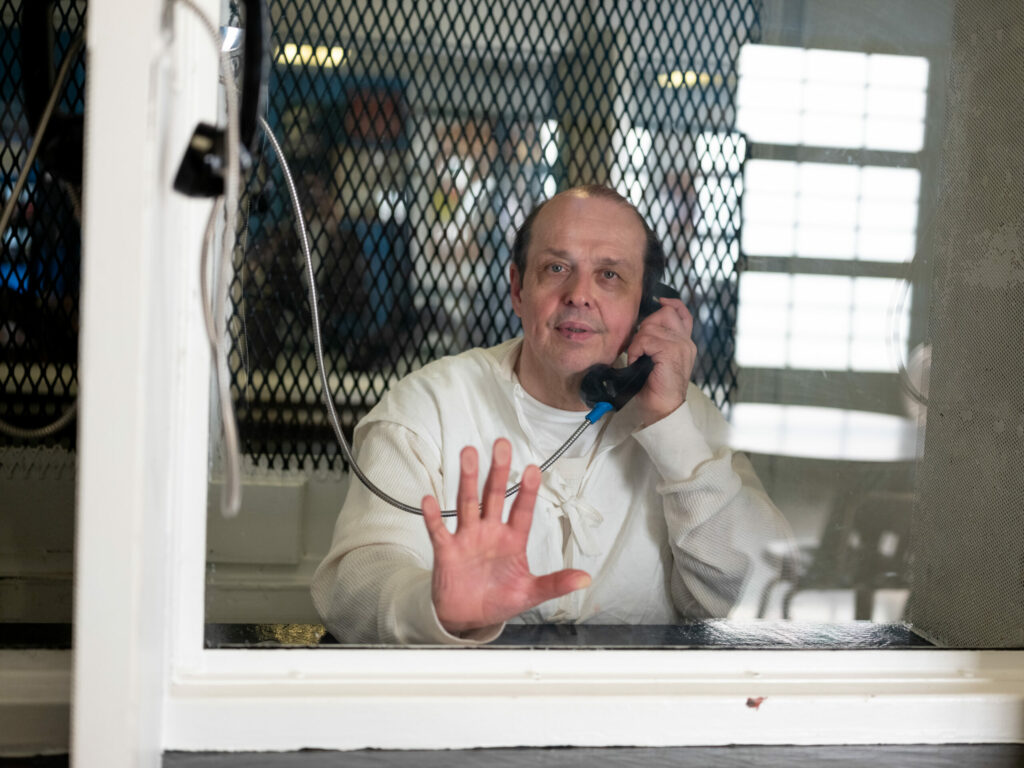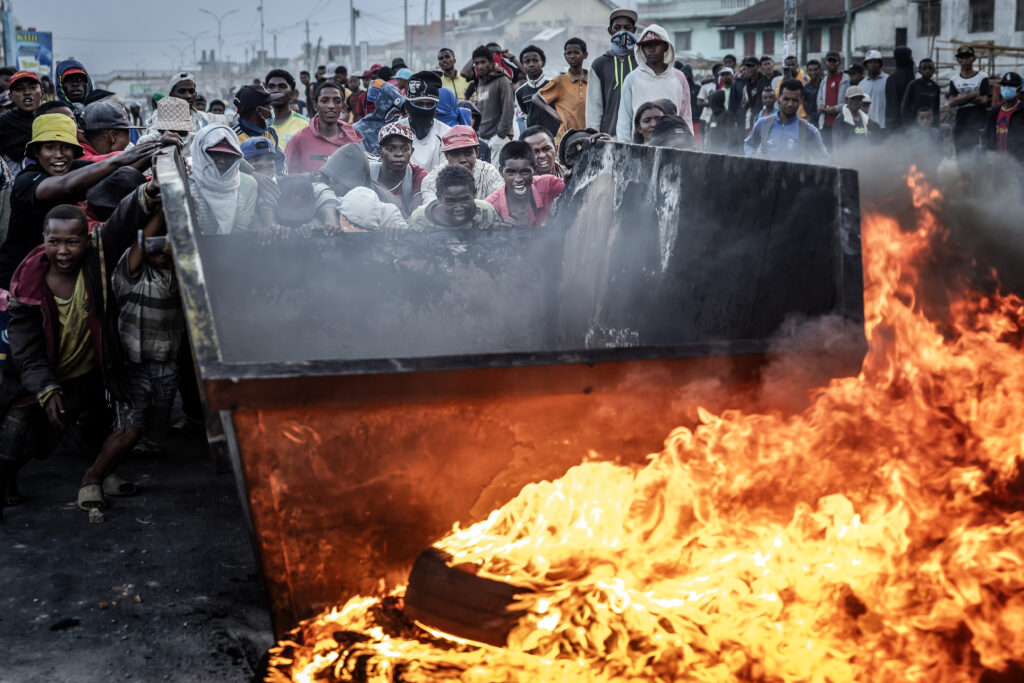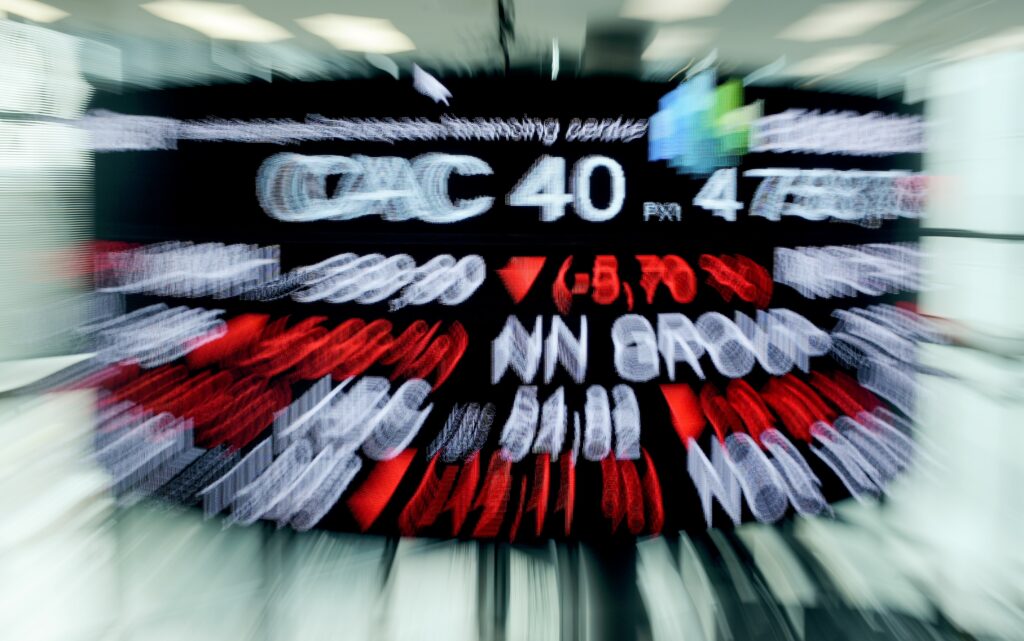“Le problème, c’est le système”: des milliers de personnes, dont de nombreuses ont été blessées par les forces de l’ordre, se sont mobilisées jeudi à Antananarivo à l’appel d’un mouvement né il y a deux semaines, pour protester contre le pouvoir malgache.Les promesses du président Andry Rajoelina, 51 ans, n’éteignent pas le mouvement Gen Z instigateur des manifestations, braqué par le ton sécuritaire du nouveau gouvernement. Ce dernier s’est concrétisé par de nombreuses blessures par des balles de caoutchouc, des grenades assourdissantes et des coups ainsi que des arrestations jeudi, a observé une équipe de l’AFP.Madagascar est le théâtre depuis deux semaines d’un mouvement de protestation né d’un ras-le-bol des coupures incessantes d’eau et d’électricité, qui s’est mué en une contestation plus large, notamment dirigée contre le président.”On vit toujours dans la galère. Le problème, c’est le système. Depuis qu’on a obtenu l’indépendance de la France (en 1960), notre vie ne s’est pas améliorée”, clame Heritiana Rafanomezantsoa, 35 ans, parmi les manifestants à Antananarivo.Dans la capitale de Madagascar, île particulièrement pauvre de l’océan Indien, un premier rassemblement d’au moins un millier de protestataires près du lac d’Anosy à la mi-journée a été dispersé par un recours immédiat et important au gaz lacrymogène, suivi de charges d’engins blindés.A la suite de cette intervention, une bataille de rue a éclaté entre les forces de l’ordre, usant en plus de balles de caoutchouc, et des groupes éparpillés, rejoints par d’autres manifestants, qui ont répliqué par des jets de pierres.Des gaz lacrymogènes tirés près d’une maternité s’y sont infiltrés, obligeant à déplacer des bébés prématurés à l’arrière du bâtiment, a relevé un journaliste de l’AFP.- Homme roué de coup -Dans le quartier voisin d’Anosibe, un homme poursuivi puis roué de coups par les forces de sécurité a été laissé inanimé au sol, avant d’être évacué par la Croix-Rouge, a constaté un journaliste de l’AFP.Par ailleurs au moins quatre personnes ont été blessées par des balles en caoutchouc, dont une ayant nécessité des points de suture, et deux par des projectiles, vraisemblablement issus de grenades assourdissantes, d’après les observations de journalistes de l’AFP et les bilans des rares organisations médicales faisant état de leurs interventions, SOS Médecin et Medikelly.Ces manifestations ont été en septembre les deuxièmes plus importantes à Madagascar depuis que l’ONG spécialiste du suivi des troubles, Acled, y collecte des données en 1997.Après avoir renvoyé son gouvernement pour tenter d’enrayer la contestation, le président Rajoelina a repris la main en nommant lundi un militaire Premier ministre, le général Ruphin Zafisambo, méconnu du grand public.Les seuls nouveaux ministres dévoilés depuis sont sont ceux des Armées, de la Sécurité publique et la Gendarmerie, car le pays “n’a plus besoin de perturbation”, a-t-il souligné.Installé une première fois au pouvoir en 2009 par les militaires à la suite d’une mobilisation populaire, Andry Rajoelina, après s’être mis en retrait en 2014, a été élu en 2018 et réélu en 2023 lors d’un scrutin boycotté par l’opposition.”Le président est égoïste, il fait des promesses mais il ne les réalise pas. Je n’y crois plus”, témoigne Niaina Ramangason, étudiant de 20 ans à l’Ecole polytechnique d’Antananarivo, venu manifester.La contestation a démontré jeudi une nouvelle vigueur après un essoufflement relatif ces derniers jours. Un cortège de centaines de manifestants a aussi été signalé à Toliara, grande ville du sud.- “Dérive militaire” -Plus de 200 organisations de la société civile malgache ont exprimé jeudi leurs “inquiétudes quant à une dérive militaire dans la gouvernance du pays”.Au moins 22 personnes ont été tuées dans les manifestations, d’après un bilan fourni le 29 septembre par l’ONU. Des “chiffres erronés” d’après le chef de l’Etat, qui estime les “pertes de vies” à 12, tous “des pilleurs, des casseurs” selon lui.Cinq protestataires ont été placés en détention provisoire et 17 sous contrôle judiciaire, selon un communiqué mercredi d’un collectif d’avocats les défendant bénévolement. Ces cinq personnes n’ont pu être incarcérées à la prison d’Antanimora, à Antananarivo, car les agents pénitentiaires y sont en grève. Il est difficile d’estimer si l’appel à la grève générale lancé par le collectif Gen Z est suivi, mais le personnel de plusieurs lycées publics de la capitale a dit débrayer.A Madagascar, 80% de la population au moins vit avec moins de 15.000 ariary par jour (2,80 euros), le seuil de pauvreté fixé par la Banque mondiale.






